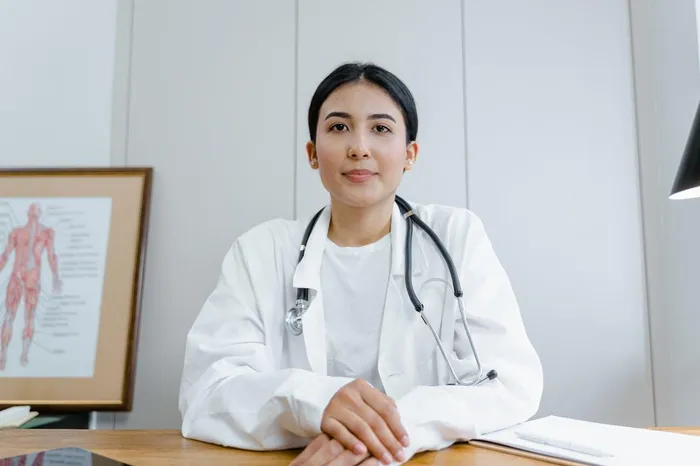Hot flashes and hard truths: Halle Berry’s menopause misdiagnosis ignites health revolution

Actress Halle Berry opens up about menopause.
Image: Instagram / halleberry
Health is a deeply personal experience impacted by a variety of biological processes that women face throughout their lives.
However, although milestones such as first steps and puberty are frequently regarded as simple, the path to menopause is plagued with unanticipated twists, particularly during perimenopause.
This critical shift, characterised by changing hormone levels, is rarely defined in the precise terms required, resulting in a troubling difference in how women's health issues are recognised and treated.
While misdiagnosis can affect anyone, research shows that women are disproportionately impacted. This disparity raises urgent questions about the underlying causes: Are we witnessing the effects of medical gaslighting, a lack of research in sex and gender medicine, and a society still grappling with outdated views of women's health?
The World Health Organisation (WHO) has acknowledged the global gap in women's health education and research. In a recent health equity report, the WHO stated that "gender biases in medical research and clinical training contribute directly to misdiagnosis and under-treatment in women."
Perimenopause is the period leading up to menopause, where hormones, particularly estrogen and progesterone, fluctuate wildly. It typically begins in a woman’s 40s but can start as early as her mid-30s.
Symptoms can include:
- Hot flashes.
- Fatigue.
- Brain fog.
- Irregular periods.
- Anxiety.
- Joint pain.
However, because these symptoms can mimic other conditions, doctors often misattribute them to unrelated illnesses.
Unfortunately, many healthcare providers lack adequate education on this subject, leaving countless women misdiagnosed with conditions like ADHD, fibromyalgia, anxiety, and even long Covid instead of recognising the hormonal changes at play.
Dr Mary Claire Haver, author of "The Pause Life", highlights this issue, noting that the absence of menopause training in medical education pushes healthcare professionals to rely on vague diagnoses that fail to address the real issue.

Unfortunately, many healthcare providers lack adequate education on this subject, leaving countless women misdiagnosed with conditions like ADHD, fibromyalgia, anxiety, and even long Covid instead of recognising the hormonal changes at play.
Image: Tima Miroshnichenko /pexels
A UK medical negligence firm, Higgs LLP, surveyed over 500 women and found that up to 1 in 3 women may experience a misdiagnosis before their actual menopause symptoms are recognised.
Many had to go through two to five medical appointments before being correctly diagnosed. This delay means unnecessary treatments, emotional distress, and years of living without the right support.
South African women aren’t immune to this. Very few doctors in our public and even private healthcare systems are trained to look for hormonal changes as the root cause of many midlife complaints in women. Treating symptoms rather than understanding the cause.
Whether it’s due to outdated medical training, internalised bias, or the centuries-old trope of female ‘hysteria,’ women are often told their symptoms are psychological rather than physiological.
One shining example of this struggle is Halle Berry, the Oscar-winning actress who has become a powerful voice for women experiencing menopause.
When she boldly declared, “I’m in menopause!” on Capitol Hill, she wasn’t merely making a statement; she was kicking open the door to a conversation that has long been kept under wraps.
Berry’s journey began with a misdiagnosis that left her frustrated and misunderstood. She recalls being incorrectly diagnosed with herpes during her own perimenopausal journey, a turning point that ignited her passion for advocacy.
Berry has transformed her experience into a mission to raise awareness about menopause. Her platform, Respin, originally a wellness website, has evolved into a comprehensive healthcare initiative focused on menopause.
“For too long, society has put women in boxes. For someone like me to speak about going through menopause, which has been so stigmatised," Berry told "Forbes", "If I can say, ‘Hey, it’s sexy to arrive at this time of our life. It’s actually a privilege to age'.”
Through Respin, Berry provides a vital resource for women navigating menopause. The platform offers telehealth consultations with menopause-trained physicians, community support, and personalised lifestyle plans.
With 1.3 million American women entering menopause each year and fewer than 2 500 physicians certified in menopause medicine, Berry’s work tackles a significant gap in healthcare.
What sets Berry's approach apart is her understanding that menopause is not a one-size-fits-all experience. By creating a supportive community where women can share their stories openly, she not only provides healthcare solutions but also emotional support. #
“This is my greatest act,” she states, emphasising the importance of addressing the stigma around ageing and health.
As women, it is vital to acknowledge and embrace this phase of life with confidence and dignity. The conversation around perimenopause and menopause is far from over, but with voices like Berry's leading the charge, there’s hope for a future where women are heard, understood and supported.
Let’s break the silence and stigma surrounding menopause, ensuring that no woman feels alone or misdiagnosed as she navigates this critical stage of life.